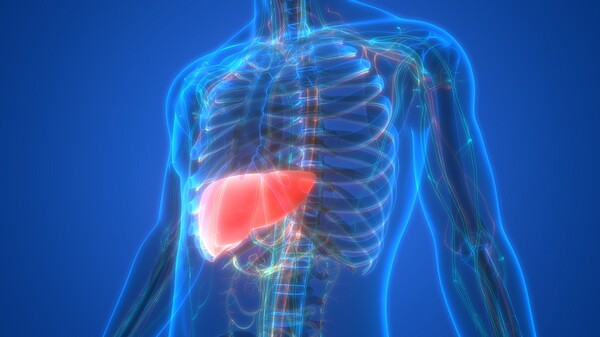Health insurance coverage for a new drug treating the rare liver disease progressive familial intrahepatic cholestasis (PFIC) will be applied starting next month.
This disease forces major surgery -- a liver transplant -- on very young children, sometimes as young as 12 months old, due to severe itching.

The Ministry of Health and Welfare announced on Friday that health insurance coverage for the PFIC drug Bylvay (odevixibat)/ will be applied starting next month.
PFIC is a rare genetic disorder caused by a gene mutation that leads to problems with a protein involved in bile secretion. This blocks the enterohepatic circulation of bile, which is deeply involved in the digestion and absorption of food, causing liver damage. That, in turn, triggers severe pruritus (itching) and leads to problems with growth and development.
PFIC, with an estimated domestic patient count in the double digits, previously had no treatment options beyond liver transplantation—removing the child's liver and replacing it with a donor liver—when the disease caused liver failure or, even without liver failure, the child's severe itching caused growth impairment and made daily life impossible.
Starting next month, Bylvay will become available as a pre-transplant treatment option for affected Korean children.
Bylvay coverage applies only to PFIC patients aged three months or older who meet two key criteria. First, the concentration of bile acids in the blood must be 100 μmol/L or higher. Second, the patient must experience moderate or severe pruritus, as determined by the Clinically Graded Itch Score (CGIS), a comprehensive assessment by the physician of the patient's sleep disturbance, skin damage, and other factors, scoring “moderate (two points)” or higher. However, patients who have already undergone a liver transplant or have severe liver dysfunction, such as decompensated cirrhosis, are excluded.
Evaluation of the treatment efficacy of Bylvay is also conducted systematically. Treatment response is assessed at the six-month mark after the initial drug administration to determine eligibility for additional coverage. Reimbursement benefits may continue if serum bile acid levels decrease by more than 30 percent compared to pre-treatment levels, or if pruritus shows marked improvement (mean CGIS score of one point or less, or a reduction of one point or more) even if bile acid levels do not decrease as expected. Subsequent treatment requires passing the same evaluation criteria every six months.
The government has also established transitional measures for patients previously receiving Bylvay capsules through non-covered or free supply programs. Patients meeting the coverage criteria can apply for national health insurance coverage until Feb. 28.
With this coverage approval, Bylvay has been added to the government's list of “high-cost drugs” subject to special management, alongside drugs such as Kymriah and Zolgensma.

